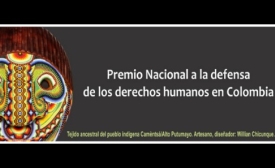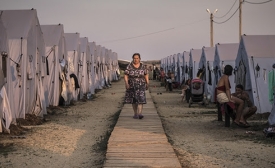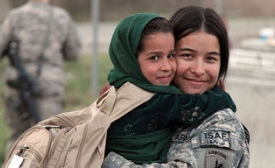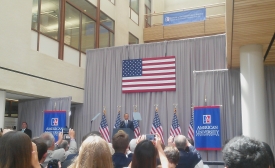peace


Street Art can become a credible vehicle for peace in violent spaces, as International Alert's Talking Peace Festival and the story of one of its exhibiting artists shows, says Alex Matchett. [...] On whether street art can change the world Westergard points at its political heritage: 'In theory a lot of propaganda has been 'street art' - think of those Bolshevik posters plastered everywhere in old Russia.
Beijing's scholars and foreign policy mandarins are experimenting on the "power/knowledge" model to win the hearts and minds of African thinkers and wielders of power in governments and regional groupings. [...] China's new power/knowledge approach to African affairs is part of its emerging African strategy.
Kim, one of many artists, storytellers and playwrights that descended on Mel Lastman Square for Friday’s Peace Fest, seeks to share stories of the traumatic past to enlighten the present and preserve the future.

Stefanie von Hlatky discussed Women, Peace and Security, NATO's crisis prevention and conflict management efforts and the role of Public Diplomacy.

Reprinted from the CPD Blog by R.S. Zaharna (Aug 6, 2015)
Iran's approach to foreign policy changed dramatically after Hassan Rouhani was elected President of Iran in 2013. The most serious and comprehensive negotiations regarding Iran’s nuclear program started in 2013 between Iran and six world powers including the United States. An interim agreement was reached on November 24, 2013. A framework agreement was reached on April 2, 2015. And finally, the comprehensive deal was reached on July 14, 2015 to ensure that Iran’s potential pathway to developing a nuclear weapon is blocked.







